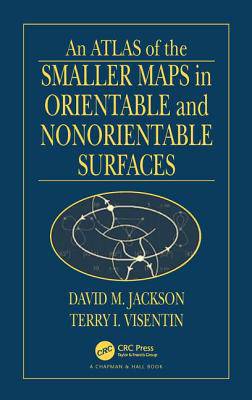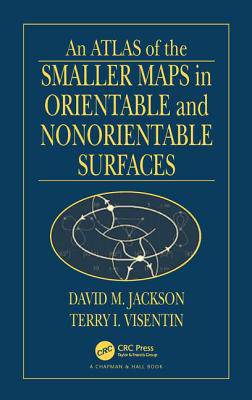
- Retrait gratuit dans votre magasin Club
- 7.000.000 titres dans notre catalogue
- Payer en toute sécurité
- Toujours un magasin près de chez vous
- Retrait gratuit dans votre magasin Club
- 7.000.0000 titres dans notre catalogue
- Payer en toute sécurité
- Toujours un magasin près de chez vous
An Atlas of the Smaller Maps in Orientable and Nonorientable Surfaces
David Jackson, Terry I Visentin
195,95 €
+ 391 points
Description
Maps are beguilingly simple structures with deep and ubiquitous properties. They arise in an essential way in many areas of mathematics and mathematical physics, but require considerable time and computational effort to generate. Few collected drawings are available for reference, and little has been written, in book form, about their enumerative aspects.
An Atlas of the Smaller Maps in Orientable and Nonorientable Surfaces is the first book to provide complete collections of maps along with their vertex and face partitions, number of rootings, and an index number for cross referencing. It provides an explanation of axiomatization and encoding, and serves as an introduction to maps as a combinatorial structure. The Atlas lists the maps first by genus and number of edges, and gives the embeddings of all graphs with at most five edges in orientable surfaces, thus presenting the genus distribution for each graph. Exemplifying the use of the Atlas, the authors explore two substantial conjectures with origins in mathematical physics and geometry: the Quadrangulation Conjecture and the b-Conjecture. The authors' clear, readable exposition and overview of enumerative theory makes this collection accessible even to professionals who are not specialists. For researchers and students working with maps, the Atlas provides a ready source of data for testing conjectures and exploring the algorithmic and algebraic properties of maps.Spécifications
Parties prenantes
- Auteur(s) :
- Editeur:
Contenu
- Nombre de pages :
- 296
- Langue:
- Anglais
- Collection :
Caractéristiques
- EAN:
- 9781584882077
- Date de parution :
- 15-09-00
- Format:
- Livre relié
- Format numérique:
- Genaaid
- Dimensions :
- 163 mm x 243 mm
- Poids :
- 580 g

Les avis
Nous publions uniquement les avis qui respectent les conditions requises. Consultez nos conditions pour les avis.






